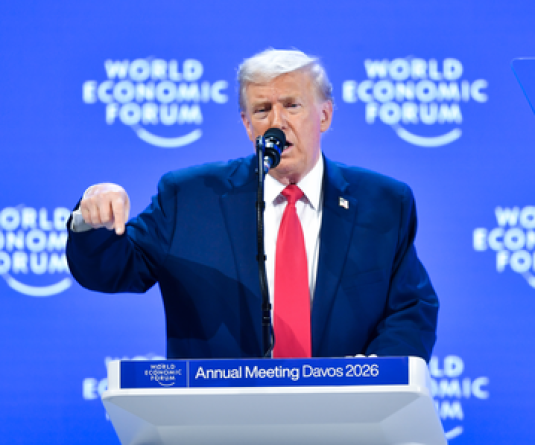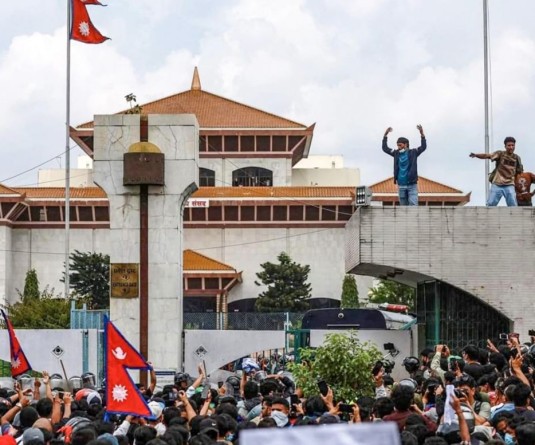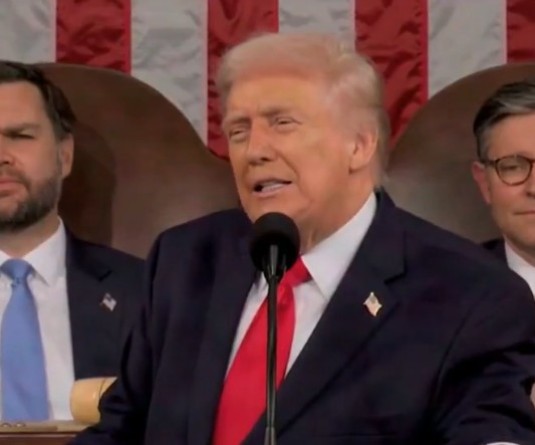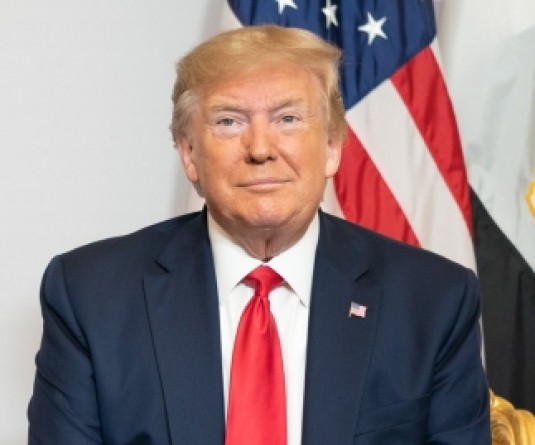Death of Hong Kong student likely to add fuel to unrest
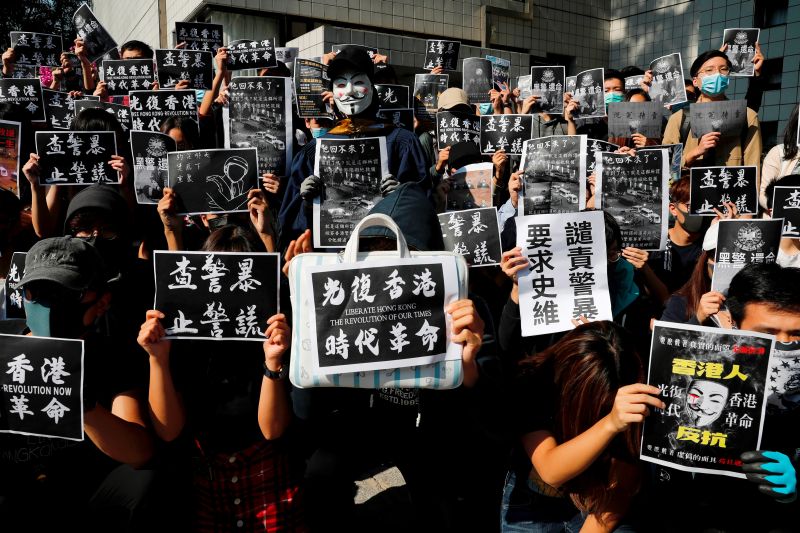
Graduates attend a ceremony to pay tribute to Chow Tsz-lok, 22, an university student who fell during protests at the weekend and died early on Friday morning, at the Hong Kong University of Science and Technology, in Hong Kong, China on November 8. (REUTERS Photo)
HONG KONG, November 8 (Reuters): A student at a Hong Kong university who fell one floor in a parking lot during pro-democracy protests at the weekend died on Friday, the first student death in months of demonstrations in the Chinese-ruled city and a likely trigger for fresh unrest.
Chow Tsz-lok, 22, an undergraduate at the University of Science and Technology (UST), died of injuries he suffered in the early hours of Monday, when he fell from the third to the second floor of a parking lot during a police dispersal operation.
Chow's death, on graduation day for many students, is expected to fuel anger at police, who are already under pressure amid accusations of excessive force as the city grapples with its worst political crisis in decades.
UST students trashed a campus branch of Starbucks, part of a franchise perceived to be pro-Beijing, and rallies are expected across the territory in the evening, when violence traditionally picks up.
"Condemn police brutality," they wrote on the restaurant's glass wall.
Demonstrators had thronged the hospital this week to pray for Chow, leaving flowers and hundreds of get-well messages on walls. Students also staged rallies at universities across the former British colony.
"He was a nice person. He was sporty. He liked playing netball and basketball," friend and fellow UST student Ben, 25, told Reuters in tears. "We played netball together for a year. I hope he can rest in peace. I really miss him."
Students and young people have been at the forefront of the hundreds of thousands who have taken to the streets since June to press for greater democracy, among other demands, and rally against perceived Chinese meddling in the Asian financial hub.
The protests, ignited by a now-scrapped extradition bill allowing people to be sent to mainland China for trial, have evolved into wider calls for democracy, posing one of the biggest challenges for Chinese President Xi Jinping since he took charge in 2012.
Two pro-Beijing newspapers ran full-page ads, commissioned by "a group of Hong Kong people," calling for a postponement of the lowest-tier district council elections set for Nov.24, a move which would infuriate those calling for democracy.
Protesters have thrown petrol bombs and vandalised banks, stores and metro stations, while police have fired rubber bullets, tear gas, water cannons and, in some cases, live ammunition in scenes of chaos.
In June, Marco Leung, 35, fell to his death from construction scaffolding after unfurling banners against the extradition bill. Several young people who have taken their own lives in recent months have been linked to the protests.
GRADUATION DAY
Chow had been pursuing a two-year undergraduate degree in computer science. His death came on graduation day for many students at his university, located in the picturesque Clear Water Bay district on the Kowloon side of the harbour.
Hundreds of students, some in their black graduation gowns and many wearing now-banned face masks, chanted "Stand with Hong Kong" and spray-painted Chow's name and pinned photos and signs of him on nearby walls.
The university called for an independent investigation.
"We saw footage of (an) ambulance being blocked by police cars and that ambulance officers needed to walk to the scene, causing a delay of 20 minutes in the rescue operation of our student," UST president Wei Shyy said in a statement.
"We demand clarifications from all parties - especially from the police, regarding the cause of the delay in those most critical moments that might have saved a young life."
The government expressed "great sorrow and regret". A police spokeswoman, tears in her eyes, said officers would find out the truth as soon as possible.
"We will spend every effort to investigate the cause," she told reporters, urging the public to be "calm and rational".
Police have denied blocking an ambulance.
The car park said it would release CCTV footage as soon as possible. It did not say what the footage might contain.
Protests scheduled over the weekend include rallies in shopping malls, some of which have previously descended into chaos as riot police stormed areas crowded with families and children. Protesters have called for a general strike on Monday morning and for people to block public transport. Such calls have come to nothing in the past.
Last weekend, anti-government protesters crowded a shopping mall in running clashes with police that saw a man slash people with a knife and bite off part of the ear of a local politician.
Hong Kong returned to Chinese rule in 1997 under a "one country, two systems" formula, allowing it colonial freedoms not enjoyed on the mainland, including an independent judiciary and the right to protest.
China denies interfering in Hong Kong and has blamed Western countries for stirring up trouble.


